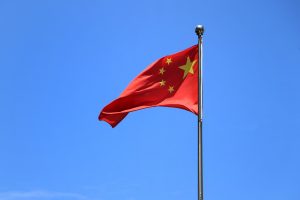With just over 400 employees, Newport Wafer Fab (NWF) is an inconspicuous business located on the southeastern coast of Wales. It is also the U.K.’s largest chip manufacturer, producing wafers of semiconductors coveted by carmakers and tech companies amid the global chip shortage. And so it was that when Nexpeira, a Chinese firm, announced in early July it would fully acquire NWF, fear of a Chinese tech takeover engulfed the Parliament.
The British government was split over how to handle the deal. Kwasi Kwarteng, the business secretary, initially declined to intervene, claiming that the acquisition is an economic matter for the Welsh government. This was met with fierce opposition from Tom Tugendhat, who chairs the Foreign Affairs Select Committee and whose hardline China policy often leaves him at odds with the leadership. (Prime Minister Boris Johnson, for one, recently warned against an “anti-China spirit” deterring Chinese investments.) Tugendhat and his colleagues insisted that the deal has national security implications, demanding that the central government review the deal by invoking the National Security and Investment Act.
As China hawks pressed forward, moderates caved. On July 20, The Telegraph reported that U.K. Research and Innovation, a body under the business department, had pulled funding for NWF, days after Johnson ordered a probe into the acquisition.
Britain is not alone in its fragmented approach to investments from Chinese firms. Across Europe, ministers and lawmakers clash over whether to ban Chinese investments on national security grounds as they begin seeing China as simultaneously a partner, competitor, and systemic rival. Pressures from the United States added to the anxiety, too. After the U.S. barred Chinese tech giant Huawei from its 5G infrastructure in 2019, Britain, Sweden, and several others have followed suit.
In some countries, however, powerful factions strived to separate business and politics. Take Germany, which counts China as its largest trading partner and the biggest sales market for its carmakers. Industry groups such as the Federation of German Industries (BDI) have argued against the exclusion of any single vendor, fearing Chinese retaliation on German companies. Peter Altmaier, the economic minister who faithfully carries out Angela Merkel’s Wandel durch Handel (change through trade) policy, also told MEPs that “it would be wrong to exclude a company on political grounds.”
But rather than resolving the issue, these announcements split the Bundestag. A coalition of more than 50 anti-Huawei lawmakers challenged Merkel’s official stance, with prominent members such as the interior minister and foreign minister voicing opposition. It took a two-year civil war for the Bundestag to finally adopt the Information Technology Security Act 2.0 in May, which gave the interior ministry, which is arguably tougher on China, more power in vetting 5G manufacturers.
While the dust has settled in Germany, many governments, lacking a national review mechanism, remain on the fence on how to handle investments from Chinese firms. To fill the gap, last October the EU adopted a framework for screening foreign direct investment (FDI). The system is the first of its kind. It allows member states to exchange information on foreign investments and takeovers, as well as the European Commission to issue opinions if it decides that an investment threatens the security of more than one member state. The act has already has some impact: In April, Italy coordinated with France to protect truckmaker Iveco SpA from a takeover by China’s FAW Group Co., citing “industrial sovereignty” reasons. And just last week, the British government requested that EDF, a French state-owned utility company, find a new partner that would replace China General Nuclear to co-develop a nuclear power station in Essex.
A notable exception that has escaped tightened screening is the battery industry. Despite efforts to mass produce battery cells, owing to their critical role in the makeup of electric vehicles and curbing climate change, the EU continues to rely on imports from China, which commands 73 percent of the global battery market and controls the most of the cobalt supply. (Europe’s share, by contrast, is a mere 3 percent.) In June, French President Emmanuel Macron unveiled a 2 billion euro ($2.4 billion) battery plant agreement between Renault, a carmaker partly owned by the French government, and China’s Envision Group, including government aid of around 200 million euros. Volkswagen also announced plans in July to make batteries with a Chinese manufacturer beginning in 2025.
The EU has received lopsided benefits from trading with China, and more Chinese investments are sure to follow should China and the EU eventually ratify their investment deal (a prospect that is less certain now than when it was first signed). Given the complexities, Europe will continue treading a fine line between offering improved market access for valuable Chinese firms on the one hand, and blocking those that are pursuing the policy ends of an authoritarian regime on the other.
































